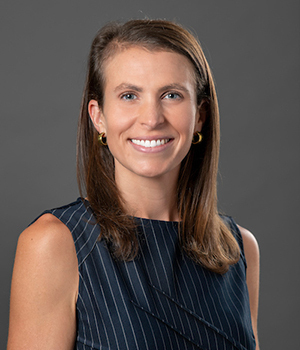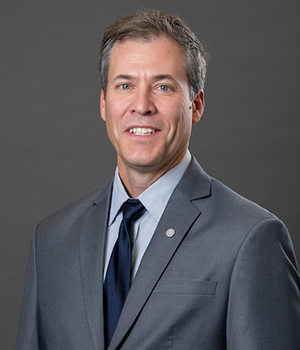In online business, opposites attract — and increase sales

Considerable research has been devoted to studying gender bias in the physical workplace, especially in the fields of management and economics.
Within online platforms, however, gender biases and how they manifest have received far less attention. There are some exceptions, including operational outcomes such as hiring, performance and compensation. Largely ignored, though, is how the design of operational processes lessens or increases gender bias.
A new study from the University of Notre Dame examines how gender bias influences people-centric operations in online platforms.
“Gender Mismatch and Bias in People-Centric Operations: Evidence from a Randomized Field Experiment” is forthcoming in the Journal of Operations Management from lead author Yoonseock Son, assistant professor of information technology, analytics and operations in Notre Dame’s Mendoza College of Business. Co-authors include Kaitlin Wowak, the Robert and Sara Lumpkins Associate Professor of Business Analytics, and Corey Angst, the Jack and Joan McGraw Family Collegiate Professor of IT, Analytics and Operations, both at Notre Dame, along with Angela Choi from SungKyunKwan University in South Korea.
For seven months, the team collaborated with an online weight management platform in Asia that provides programs, products and consulting services for healthy living.
The researchers created an experimental design that linked clients and consultants in different gender combinations, and then examined how gender biases differed during their exchanges.

Clients could ask questions on the website’s chat feature and within 24 hours, a consultant would respond and then recommend a product. The clients would then rate their experience.
“Surprisingly, we found that clients have a better experience and spend more on products and services when there are gender mismatches,” Son said. “In other words, this happens when female clients are paired with male consultants and male clients with females.”
The team also found the effects of gender mismatches differ depending on the customer’s actions, whether they are leaving ratings, purchasing recommended products or simply browsing.
Knowing a consultant’s gender led customers to leave more and higher ratings, click on recommended products and then make purchases.
If the consultant was of the opposite gender, ratings were even higher — much more so from female clients with male consultants.
Female customers had a higher click-through rate when gender was reported, regardless of which it was, but the men only clicked more on the products if their consultants were women.
Purchase rates increased only for products recommended by the female consultants, and in these cases, the men bought significantly more than the women.

“Past research suggests that women’s performance may suffer with a male consultant,” Son said, “but we find women may actually outperform their male counterparts.”
The study states, “The design — or redesign — of operational processes with consideration to gender bias is important across sectors, but is particularly important in the service industry as services are people-centric and increasingly shifting toward online platforms where face-to-face interactions are largely eliminated.”
The findings, which apply to any circumstance with no face-to-face interaction, provide a new tool for managers of platform businesses such as TripAdvisor, Yelp, Uber and Lyft. With ride-hailing services, the decision to ride is made before the customer and driver meet.
Better understanding how a client’s gender influences biases toward a company’s employees can help improve customer service as well as firm performance.
Firms can look at a customer’s name and browsing history to help deduce gender, and then design more effective customer-employee matching algorithms and training programs.
“Our study can help firms to get the most from matches or leverage mismatches and maximize overall effectiveness,” Son said. “It’s a win-win situation for both the customer and the firm.”
Contact: Yoonseock Son, 574-631-1666, yson@nd.edu
Latest ND NewsWire
- Smarter tools for policymakers: Notre Dame researchers target urban carbon emissions, building by buildingCarbon emissions continue to increase at record levels, fueling climate instability and worsening air quality conditions for billions in cities worldwide. Yet despite global commitments to carbon neutrality, urban policymakers still struggle to implement effective mitigation strategies at the city scale. Now, researchers at Notre Dame’s School of Architecture, the College of Engineering and the Lucy Family Institute for Data & Society are working to reduce carbon emissions through advanced simulations and a novel artificial intelligence-driven tool, EcoSphere.
- Notre Dame Lead Innovation Team partners with local WIC program to identify, prevent lead poisoning in childrenB.A.B.E. store “shoppers” now have something new to help their families: free lead screening kits offered by the University of Notre Dame’s Lead Innovation Team.
- Vatican honors Martin and Carmel Naughton with papal awardThe late Pope Francis, in one of his last acts, conferred the honour of the Order of Saint Gregory the Great upon Carmel and Martin Naughton, Trustee Emeritus of the University of Notre Dame. The papal honor is in recognition of the Naughtons’ outstanding philanthropy in the areas of education and the arts, particularly in the provision of philanthropic support and scholarships to Catholic education at the University of Notre Dame and Kylemore Abbey, and in their transformative contributions to higher education in Ireland.
- Brain tumor growth patterns may help inform patient care managementAssistant Professor Meenal Datta (University of Notre Dame/Wes Evard) A team of researchers from the University of Notre Dame, Harvard Medical School/Massachusetts General Hospital, and Boston University has developed a technique for measuring a brain tumor’s mechanical force and a new model to estimate how much brain tissue a patient has lost.
- Notre Dame elects two new TrusteesTwo new Trustees — John F. Crowley and Danielle Walker Merfeld — have been elected to serve on the University of Notre Dame’s Board of Trustees effective July 1. …
- From reaction to resolution: The future of allergy treatmentTwelve-year-old Lauren Eglite was thrilled to attend a Notre Dame football game with her father, Erik, in 2017, even though her acute peanut allergy demands constant vigilance. She was even more excited when the stadium’s brand-new video board aired an NBC Fighting…












